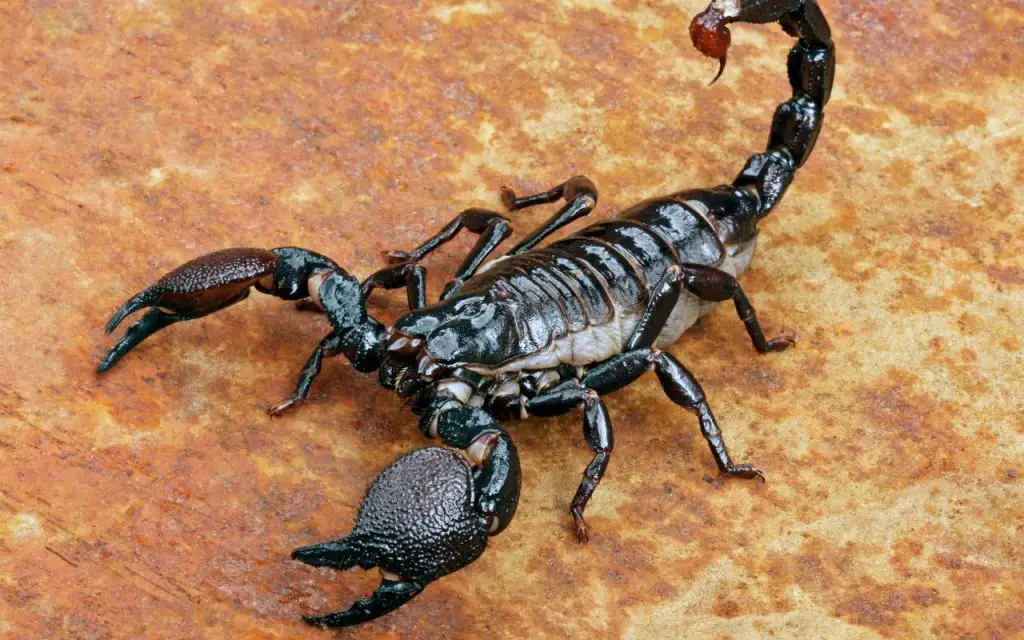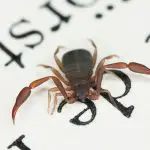Can scorpions climb walls? Though they don’t have adhesive pads on their feet like tarantulas, scorpions can climb some walls. Keep reading to find out more…
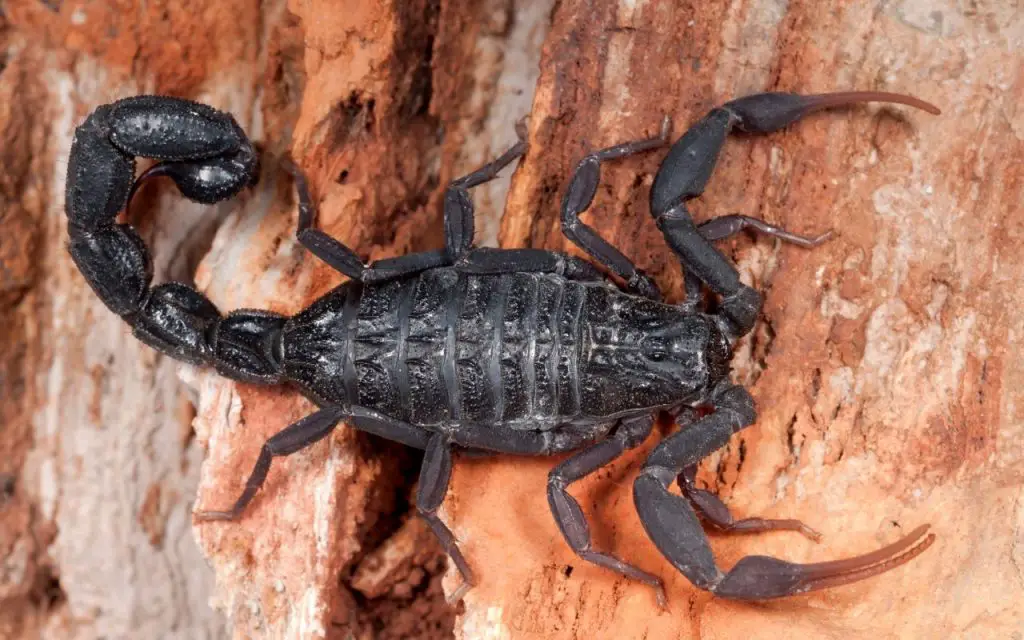
Scorpions can climb walls though they are not adept at scaling smooth and vertical surfaces. The scorpion has eight short legs and two prominent pincers and moves by scuttling and gripping the surface.
This means if the wall is uneven or rutted a scorpion can ascend it. The Arizona bark scorpion is especially proficient in shinning up trees, boulders, fences and walls.
It’s the only scorpion in the United States capable of climbing walls and is usually found in desert areas in New Mexico and southern parts of the country.
Can scorpions climb metal?
Scorpions can climb a metal object or structure if it has a sufficiently grooved surface. A scorpion has tiny claws at the end of its legs which enable it to grasp any terrain and balance itself.
However, if the metal object’s exterior is polished the scorpion would slide off its surface. Even if it could climb the metallic face its trajectory won’t go beyond a few inches at best.
Metal closets are not exactly scorpion proof as they often have crevices that let the reclusive creature hide within its depths. In fact the bark scorpion has a unique method of concealing itself on the underside of any structure.
This unusual preference for hanging upside down, known as negative geotaxis, makes it especially dangerous to humans. Several people have suffered stings due to being unaware of the scorpion’s tendency to haunt out of sight places.

Can scorpions climb aluminum?
Scorpions are unable to ascend gleaming aluminum objects such as kitchen appliances or machinery. A scorpion can clamber up if it can make use of handles, shelves, bars, levers or any extension as a step for gaining momentum.
Lining the exterior walls with aluminum foil strips is a good way to prevent scorpions from gaining an entry into the house. This is an effective strategy if you have a large front or back yard and live in a tropical or subtropical region.
Can scorpions climb up stairs?
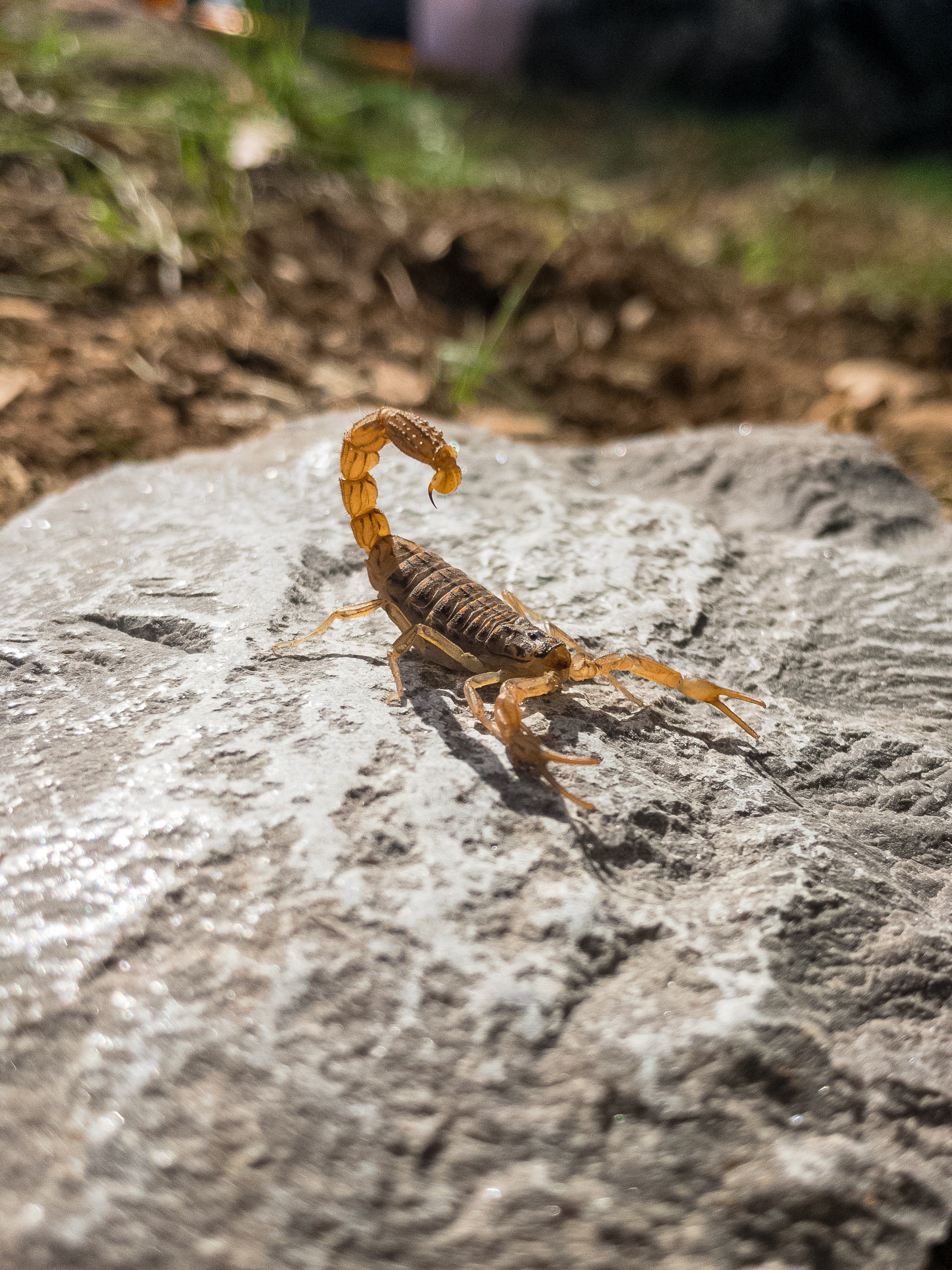
People are often mystified to find scorpions on the top floors of buildings. Scorpions are not natural climbers unlike their cousins the spiders or centipedes and insects such as beetles.
A scorpion will mount stairs only to gain a hiding place in cracks or while hunting its prey such as cockroaches. If your building is behind its maintenance or pest control schedule, chances are you might find a scorpion nestled away behind junk or burrowed in fissures.
A pest problem is often an underlying cause of a scorpion outbreak.
Scorpions won’t be able to get a foothold to scramble up granite, marble or tiled stairs. Concrete steps though have a ridged surface and won’t keep out these arachnids.
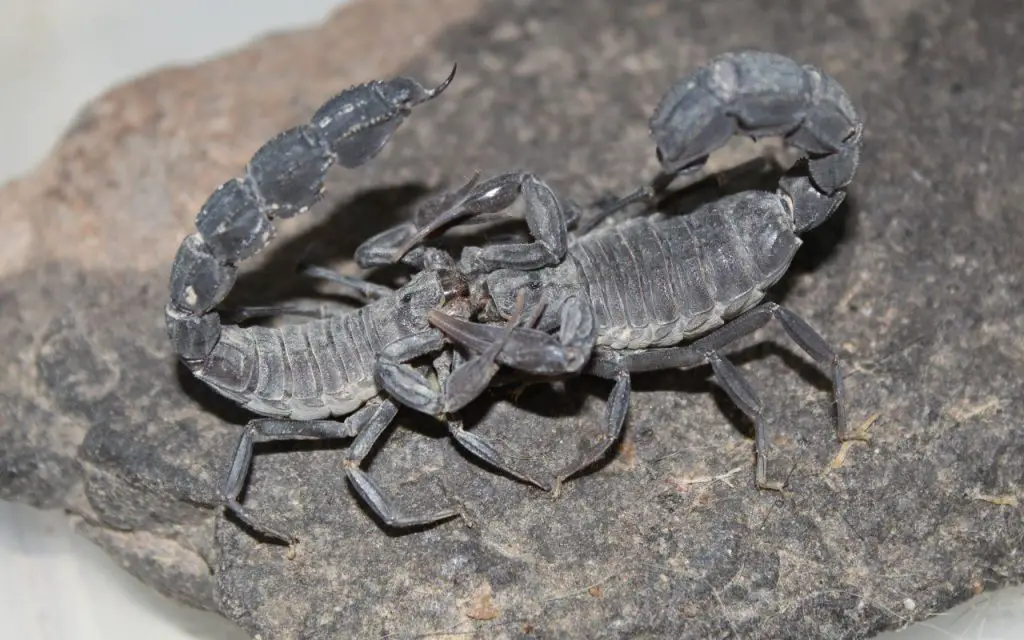
How do scorpions get upstairs?
Scorpions don’t always have to climb all the way to get upstairs. Often they can hitch a ride with any potted plant or flower vase that you carry to your house.
Always be careful while bringing in anything which is moist and warm, a favorite environment for scorpions to thrive. This includes furniture, bedding, curtains and clothes, especially when they have been stored or unused for a long period of time.
Other entry points are air vents or air-conditioning ducts. Grimy and dank corners can provide scorpions a spot to breed prolifically leading to an infestation throughout an apartment building.
Can scorpions climb glass?
Scorpions cannot climb any glassy surface. Lacking suction cups or sticky pads on their legs, scorpions fail to get a grip on the slippery exterior.
Glass is one of the best deterrents when dealing with a scorpion problem. A common method to keep scorpions from clambering up tables, desks, chairs and beds is to wrap the legs in glass jars.
A novel way to prevent scorpions from plopping on your head is to put a glass or aluminum panel on the ceiling. You can put up such screens anyplace in the house where you spend a considerable amount of time like the bedroom or home office.
Glass is useful not only to dissuade scorpions from entering the house but also to enclose these creatures if you find them in the house. A glass container is an effective way to confine a scorpion as it has an immobilizing effect and curbs the scorpion’s aggressive instincts.
However, it’s risky to attempt to trap a scorpion as it can react in an unpredictable manner if cornered. Often it’s best left to specialists such as pest control professional to dispose off any critters that you find in the house.
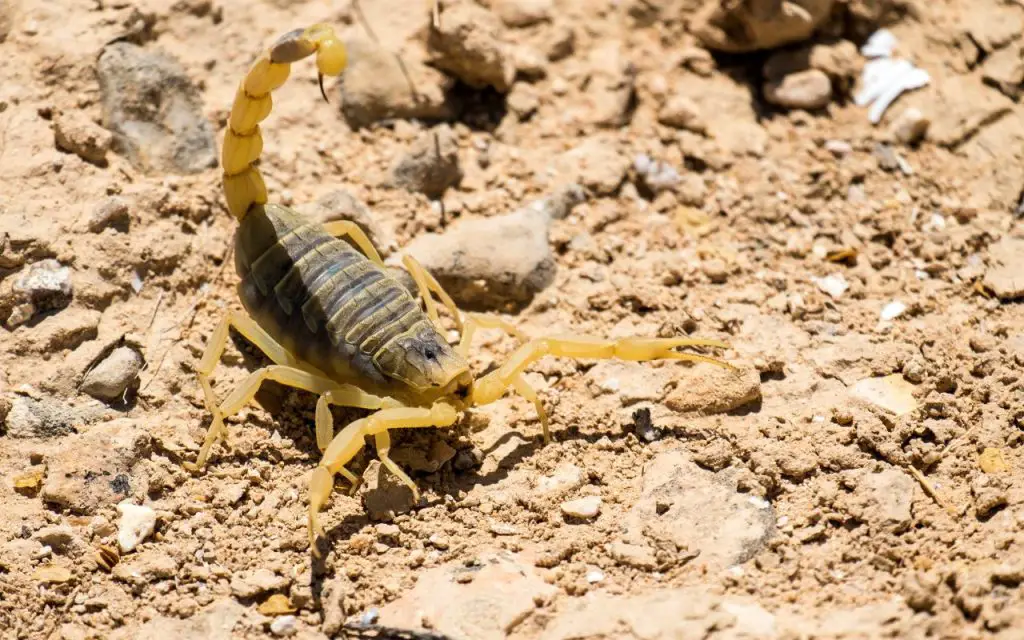
Can scorpions jump?
While scorpions cannot jump like frogs, they do have the capability to propel themselves in the air while pursuing their prey or escaping from predators.
Scorpions are usually slow-moving and when it displays an active demeanor it’s always wise to step out of its way. A scorpion stings when it’s moving quickly while hunting or jumping over any small obstacles to get away from a threat.
Bark scorpions can also leap from low hanging tree branches into your house. That’s a good reason to trim any branches that brush against the walls of the house.
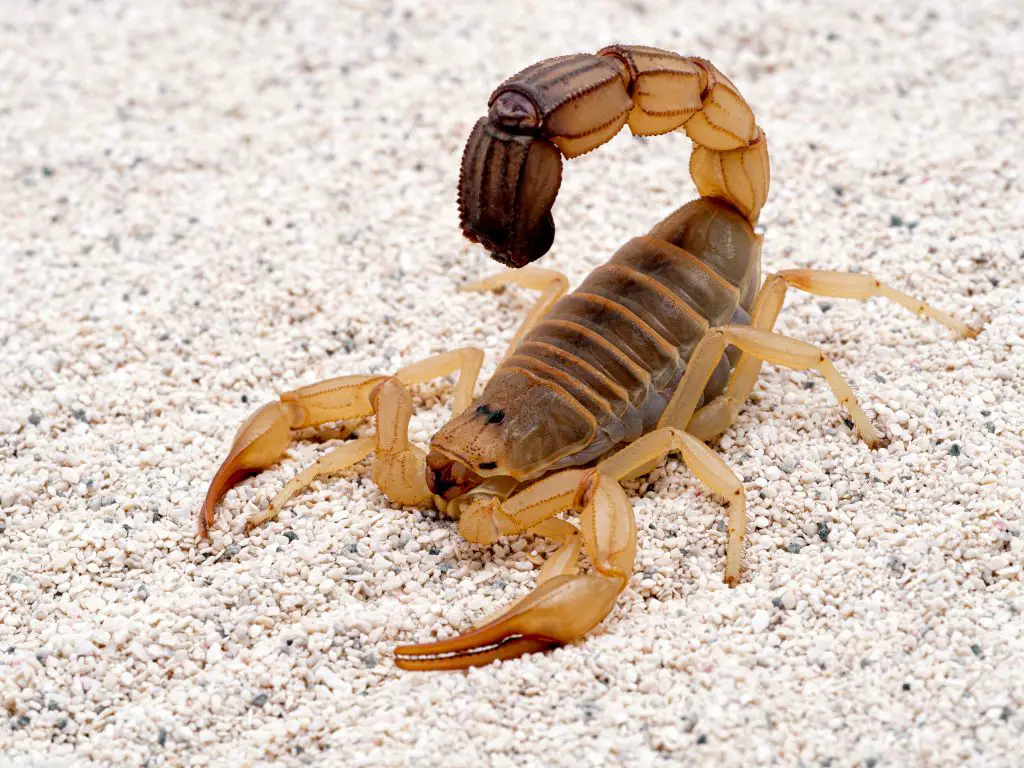
Can scorpions kill you?
A scorpion’s tail curves behind its body and ends in a stinger which can deliver an extremely painful sting. The sting results in swelling or lesions and numbness at the site of injury.
A variety of side effects occur along with a scorpion sting depending on the potency of the venom.
These include,
- Difficulty in breathing
- Nausea and vomiting
- Hypertension or high blood pressure
- A racing heartbeat
- Tremors and convulsions
- Anxiety and restlessness
- Profuse sweating
- Slurred speech and drooling
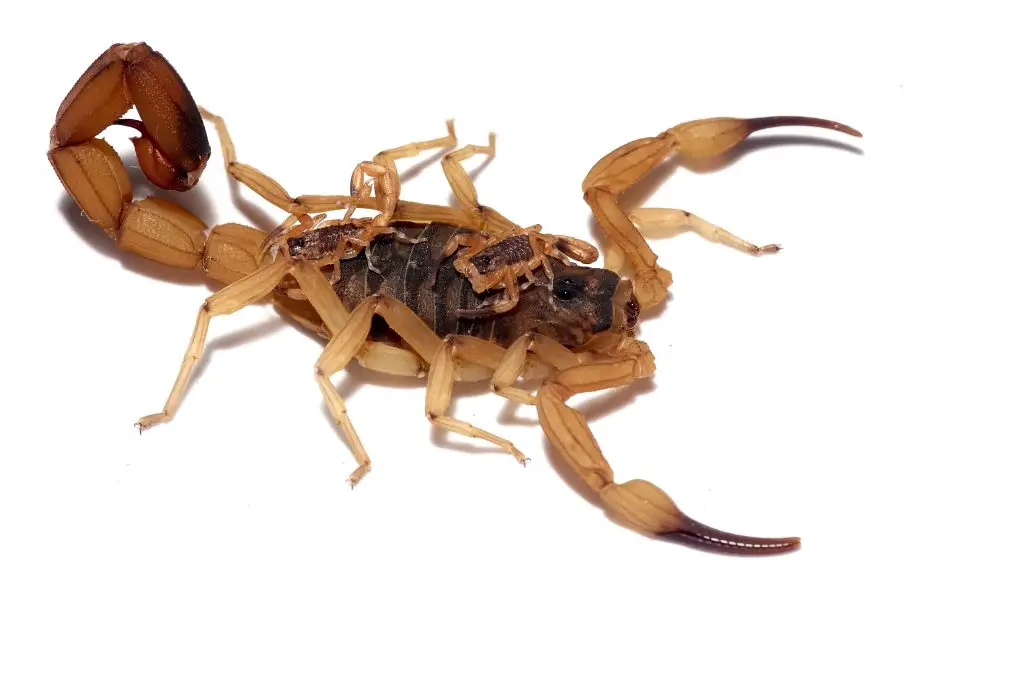
The symptoms start within five minutes of a sting and can last for as long as three days. However, it’s rare for a scorpion sting to cause death in a healthy adult and less than 5% of stings requiring medical intervention.
It’s always recommended to seek medical attention in cases where small children, the elderly or people with pre-existing health conditions get stung. Most fatalities are the result of an allergic reaction to the venom or worsening of previous health conditions.
This includes respiratory ailments, heart and kidney diseases or any chronic illness that has weakened the immune system. Such situations constitute a medical emergency and need to be addressed immediately.
Scorpion venom interferes with the functioning of the nervous system. Most emergency procedures involve use of antivenom to counteract the neurotoxins, antihistamines to treat potential severe reactions and pain relievers.
Only about 25 species or about 2% of the total number of species of scorpions are considered as dangerous to humans. These species are found in Central and South America, North Africa, the Middle East and South Asia.
None of the species of scorpions found in the United States are considered as dangerous or lethal to humans.
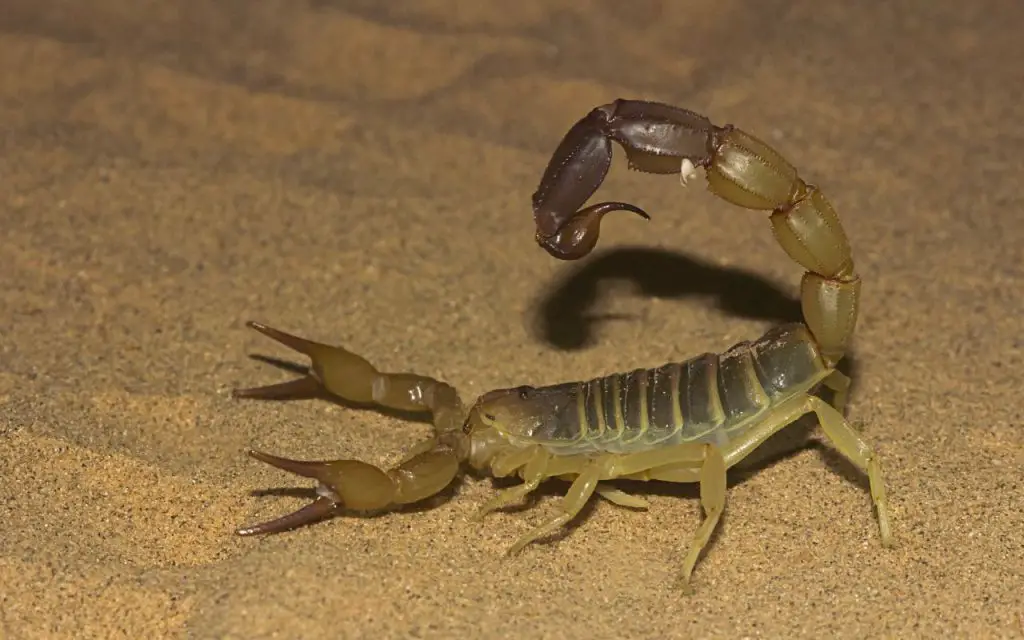
How to keep scorpions away
Scorpions are attracted to places where they can get shelter and food. This includes dark, damp and warm places with stuff lying around.
The presence of a food source such as ants, bugs and cockroaches will also draw scorpions to your house.
You can keep away scorpions by maintaining a degree of cleanliness and order around the house. It’s a good idea to get rid of unnecessary objects, conduct regular pest control and fill up any holes or crevices will turn off scorpions from invading your house.
Also scorpions prefer to seek refuge in humid areas during the daytime. So ensure that any faulty plumbing, leaking taps and water storage tanks are fixed.
The striped bark scorpion needs space as less as one-sixteenth of an inch to squeeze in. This is about the thickness of a credit card.
If you want to scorpion proof your home you will need to seal or caulk all cracks and small gaps in the
- Ceilings and walls of your home
- Exterior doors and window screens
- Vents and ducts
- Flooring and crawl spaces
- Plumbing and electricity fixtures
You can also use scorpion repellants, diatomaceous earth and traps or seek professional help if you are facing an infestation of scorpions.
FAQ relating to whether scorpions can climb walls
Can scorpions climb into your bed?

Scorpions can and will climb into your bed. Being nocturnal they are active after sunset when they forage and hunt for food.
What can you do to not run into these scary creatures when you are preparing to relax?
- Keep your bed away from the walls.
- Regularly air and clean all bedding
- Do not leave any sheets lying partially on the floor and the bed
- Hang an aluminum screen or glass panel over the bed
- Put a glass jar around the bed’s legs
- Use ultraviolet black light to search for scorpions in the bed’s nooks and crannies
Scorpions fluoresce under UV light with fully grown scorpions glowing a bright yellow or bluish-green under a black light’s beam. You can also brighten up the room with white light bulbs which is a known inhibitor of scorpion activity.
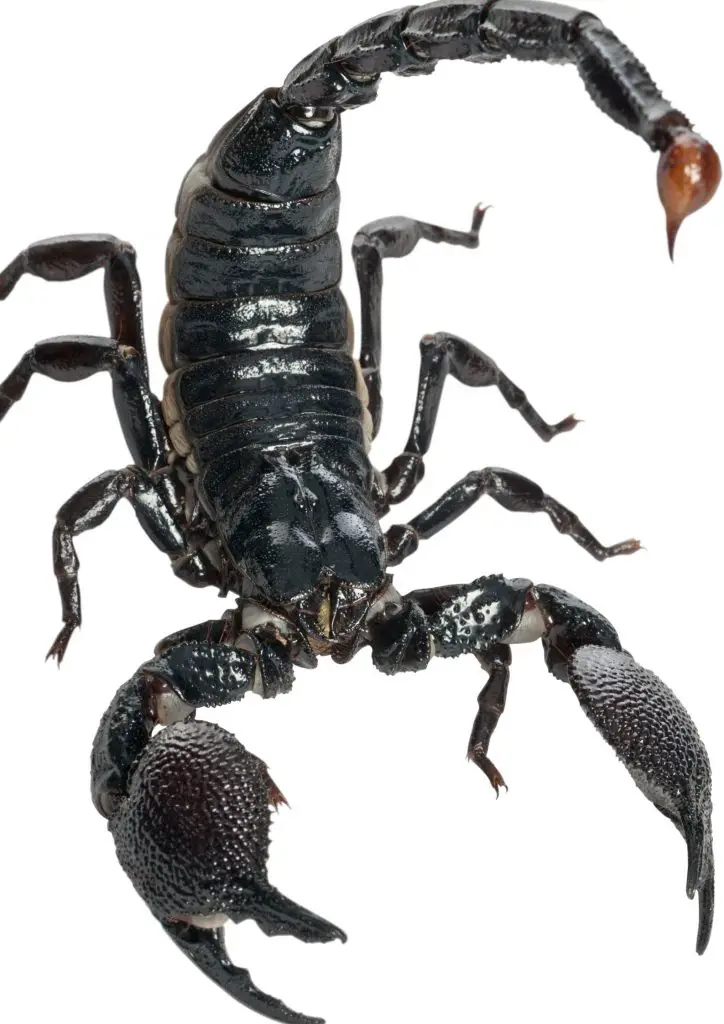
What to do if you find a scorpion in your room?
The most important thing to do is not to panic. A scorpion is a lethargic and reclusive creature with poor eyesight and won’t strike you unless provoked.
Do not touch it with your hand or try to poke it with any object. Neither try to crush it below your shoe as the stinger can still pierce your foot through the shoe.
The best way to deal with it is to call your local pest control experts to safely dispose off the scorpion. However, if none is available in the vicinity you can use a scorpion repellant or diatomaceous earth to stun the animal.
Then use a broom to sweep it below a large glass container that you can place upside down on the floor to confine the scorpion within it.
Can scorpions climb things?
Scorpions can climb any object where they can get their footing. A scorpion’s legs are relatively short compared to its body, and it can only scale a rough surface.
A scorpion cannot go up anything made of smooth and slippery materials such as glass and metal. So if it’s able to grip the surface with its claws, a scorpion can clamber up beds, closets, shoe racks, chairs, sofas and tables.
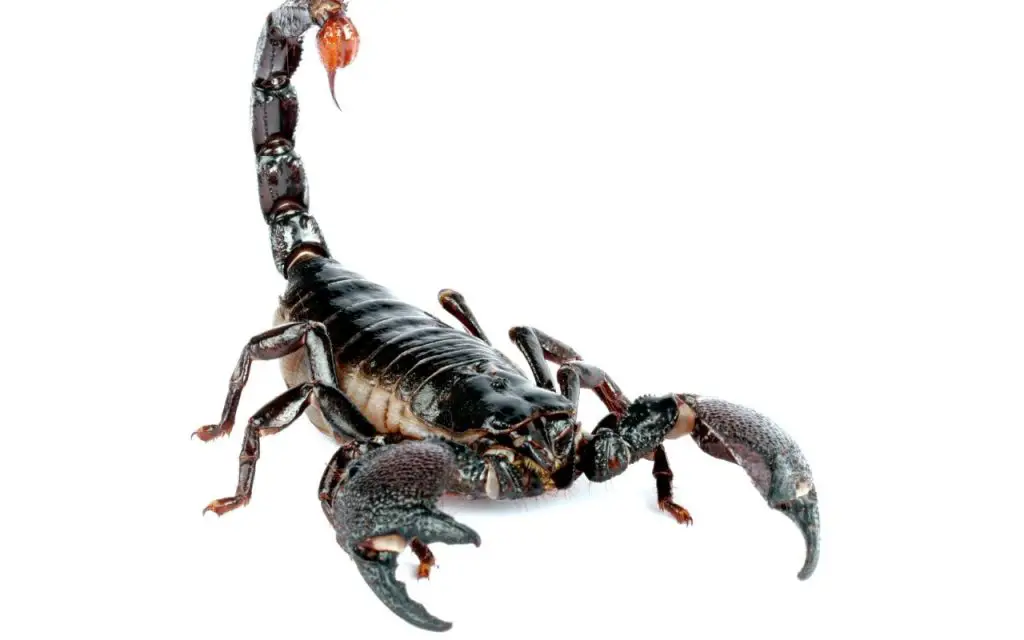
Where do scorpions hide in your house?
When it comes to scorpions, healthy adults usually prefers dark, moist and warm places to hide in your house. Any place or object that’s inaccessible or remains undisturbed for a long time will attract scorpions.
Scorpions are found in cooler and shaded places around water sources during the daytime and summer season. These include bathrooms, laundry rooms, kitchen sinks and stone walls.
In the nighttime and winter months scorpions seek shelter in sheets, beds, cabinets, within shoes and below kitchen appliances.
Any small cracks or gap in the floor, furniture and wall voids are a potential hiding spot. If your house has a front or backyard, the first thing to do is to check loose debris, rocks, logs and pile of leaves.
These are some of the most common places to find a scorpion.

